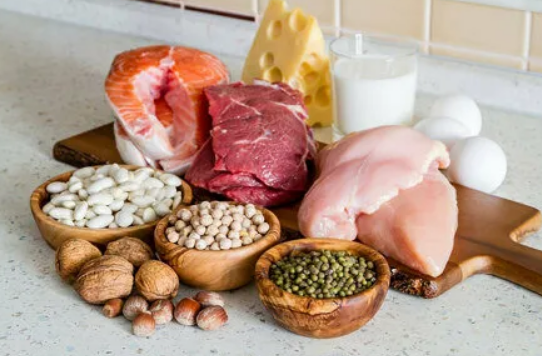#foodtechnology #climatechange #sustainableagriculture #alternativeproteins #indoorfarming #precisionfarming
Technological advancements in food production, including indoor farming, alternative proteins, and precision farming, are revolutionizing the way we feed the world while mitigating climate change. This article explores the development and consequences of these innovations in sustainable agriculture, addressing the urgent need to produce more food with fewer resources to meet the demands of a growing global population.
The challenges posed by climate change and increasing food demand have spurred the development of various technologies throughout the food system. From the farm level to the supply chain, innovations are being harnessed to address complex issues related to production, distribution, waste management, and packaging. A study published in Nature highlighted that food systems contribute to one-third of global greenhouse gas emissions, emphasizing the urgency of finding sustainable solutions.
With the global population projected to reach 9.8 billion by 2050, and the growing demand for resource-intensive foods like meat and dairy products, the need for transformative agricultural practices is evident. Additionally, the prevalence of hunger and malnourishment affecting over 800 million people necessitates a simultaneous increase in food production, efficient resource utilization, and waste reduction. Morgan Stanley’s analysis identified several key agriculture tech sectors with significant growth potential, including alternative proteins, resource-optimized seeds, and precision agriculture.
Among the most promising technologies are alternative proteins, which offer a sustainable and ethical alternative to traditional animal-based products. These proteins, derived from sources such as plant-based ingredients, fungi, or cell cultures, can help meet the rising demand for protein-rich foods while reducing the environmental impact associated with livestock production.
Indoor farming, another noteworthy innovation, utilizes controlled environments and advanced technologies like robotics and artificial intelligence to maximize crop yields and minimize resource consumption. This approach allows for year-round production, independent of climate conditions, and reduces water usage by up to 90% compared to conventional agriculture.
Precision farming, enabled by data collection and analysis, provides farmers with crucial insights into soil quality, water use, and climate impact. By employing targeted interventions such as precision spraying and controlled environment farming, farmers can optimize resource utilization and minimize environmental harm.
These advancements in sustainable agriculture have gained traction among investors and entrepreneurs, driven by the urgent need to decarbonize the agri-food system and enhance food security. Startups like AppHarvest, employing indoor farming techniques, and Terviva, harnessing the potential of alternative protein sources like the pongamia tree, are addressing these challenges head-on.
The future of food lies in embracing technological innovations that promote sustainable and climate-resilient agriculture. From indoor farming to alternative proteins and precision farming, these advancements offer solutions to the complex challenges of feeding a growing population while mitigating climate change. By investing in and adopting these technologies, we can pave the way for a more secure, efficient, and environmentally friendly food system.









